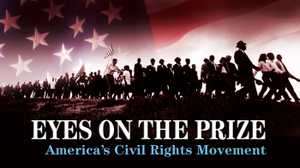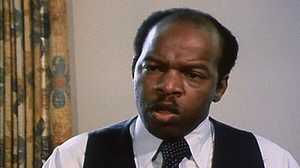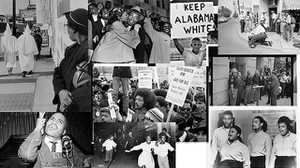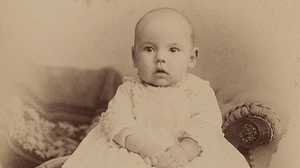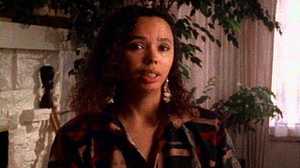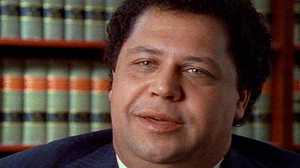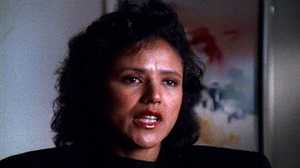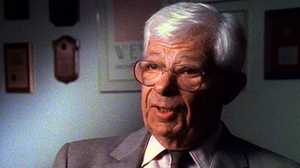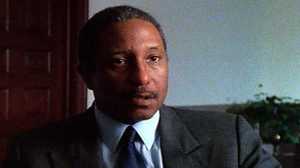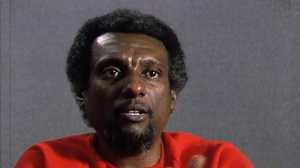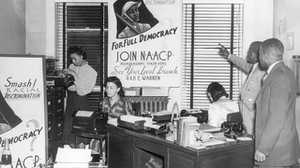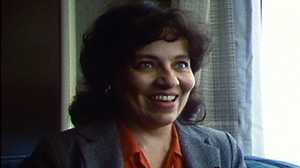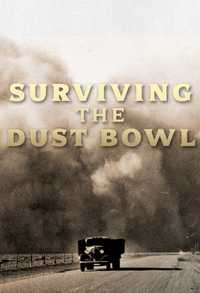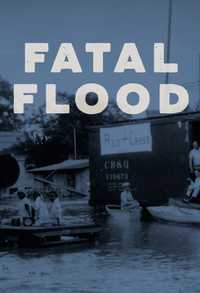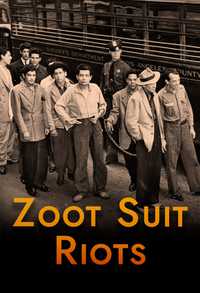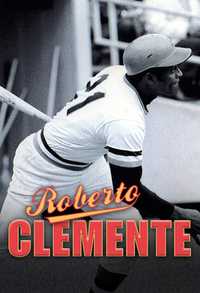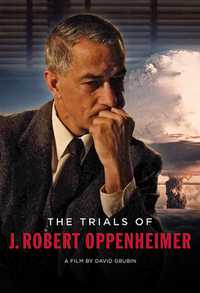Film Description
Produced by Blackside, Eyes on the Prize tells the definitive story of the civil rights era from the point of view of the ordinary men and women whose extraordinary actions launched a movement that changed the fabric of American life, and embodied a struggle whose reverberations continue to be felt today. Winner of numerous Emmy Awards, a George Foster Peabody Award, an International Documentary Award, and a Television Critics Association Award, Eyes on the Prize is the most critically acclaimed documentary on civil rights in America.
Eyes on the Prize recounts the fight to end decades of discrimination and segregation. It is the story of the people — young and old, male and female, northern and southern — who, compelled by a meeting of conscience and circumstance, worked to eradicate a world where whites and blacks could not go to the same school, ride the same bus, vote in the same election, or participate equally in society. It was a world in which peaceful demonstrators were met with resistance and brutality — in short, a reality that is now nearly incomprehensible to many young Americans.
Through contemporary interviews and historical footage, Eyes on the Prize traces the civil rights movement from the Montgomery bus boycott to the Voting Rights Act; from early acts of individual courage through the flowering of a mass movement and its eventual split into factions. Julian Bond, political leader and civil rights activist, narrates.
The driving force behind Eyes on the Prize and Blackside, Henry Hampton (1940-1998) won numerous awards for this landmark series including the duPont-Columbia Gold Baton, the Peabody Award, and Academy Award nominations. He set out to share his vision of what he called "the remarkable human drama that was the Civil Rights Movement" through the Eyes on the Prizedocumentary and a book of the same title by Juan Williams. In recent years, a number of key figures who appear in the films (including the Reverend Ralph Abernathy, a leader of the Montgomery bus boycott; Coretta Scott King, wife of slain civil rights leader Martin Luther King, and an activist in her own right; Kwame Ture, also known as Stokely Carmichael, leader of the Student Nonviolent Coordinating Committee; and George Wallace, the 1960s Alabama governor who resisted integration) have died, making this record of their testimony all the more valuable.
Programs in the series:
Awakenings (1954-1956)
Individual acts of courage inspire black Southerners to fight for their rights: Mose Wright testifies against the white men who murdered young Emmett Till, and Rosa Parks refuses to give up her bus seat to a white man in Montgomery, Alabama.
Fighting Back (1957-1962)
States' rights loyalists and federal authorities collide in the 1957 battle to integrate Little Rock's Central High School, and again in James Meredith's 1962 challenge to segregation at the University of Mississippi. Both times, a Southern governor squares off with a U.S. president, violence erupts — and integration is carried out.
Ain't Scared of Your Jails (1960-1961)
Black college students take a leadership role in the civil rights movement as lunch counter sit-ins spread across the South. "Freedom Riders" also try to desegregate interstate buses, but they are brutally attacked as they travel.
No Easy Walk (1961-1963)
The civil rights movement discovers the power of mass demonstrations as the Rev. Martin Luther King, Jr. emerges as its most visible leader. Some demonstrations succeed; others fail. But the triumphant March on Washington, D.C., under King's leadership, shows a mounting national support for civil rights. President John F. Kennedy proposes the Civil Rights Act.
Mississippi: Is This America? (1963-1964)
Mississippi's grass-roots civil rights movement becomes an American concern when college students travel south to help register black voters and three activists are murdered. The Mississippi Freedom Democratic Party challenges the regular Mississippi delegation at the Democratic Convention in Atlantic City.
Bridge to Freedom (1965)
A decade of lessons is applied in the climactic and bloody march from Selma to Montgomery, Alabama. A major victory is won when the federal Voting Rights Bill passes, but civil rights leaders know they have new challenges ahead.
The Time Has Come (1964-66)
After a decade-long cry for justice, a new sound is heard in the civil rights movement: the insistent call for power. Malcolm X takes an eloquent nationalism to urban streets as a younger generation of black leaders listens. In the South, Stokely Carmichael and the Student Nonviolent Coordinating Committee (SNCC) move from "Freedom Now!" to "Black Power!" as the fabric of the traditional movement changes.
Two Societies (1965-68)
Martin Luther King, Jr. and the Southern Christian Leadership Conference (SCLC) come north to help Chicago's civil rights leaders in their nonviolent struggle against segregated housing. Their efforts pit them against Chicago's powerful mayor, Richard Daley. When a series of marches through all-white neighborhoods draws violence, King and Daley negotiate with mixed results. In Detroit, a police raid in a black neighborhood sparks an urban uprising that lasts five days, leaving 43 people dead. The Kerner Commission finds that America is becoming "two societies, one black, one white, separate and unequal." President Lyndon Johnson, who appointed the commission, ignores the report.
Power! (1966-68)
The call for Black Power takes various forms across communities in black America. In Cleveland, Carl Stokes wins election as the first black mayor of a major American city. The Black Panther Party, armed with law books, breakfast programs, and guns, is born in Oakland. Substandard teaching practices prompt parents to gain educational control of a Brooklyn school district but then lead them to a showdown with New York City's teachers' union.
Power! (1966-68)
The call for Black Power takes various forms across communities in black America. In Cleveland, Carl Stokes wins election as the first black mayor of a major American city. The Black Panther Party, armed with law books, breakfast programs, and guns, is born in Oakland. Substandard teaching practices prompt parents to gain educational control of a Brooklyn school district but then lead them to a showdown with New York City's teachers' union.
The Promised Land (1967-68)
Martin Luther King stakes out new ground for himself and the rapidly fragmenting civil rights movement. One year before his death, he publicly opposes the war in Vietnam. His Southern Christian Leadership Conference (SCLC) embarks on an ambitious Poor People's Campaign. In the midst of political organizing, King detours to support striking sanitation workers in Memphis, where he is assassinated. King's death and the failure of his final campaign mark the end of a major stream of the movement.
Ain't Gonna Shuffle No More (1964-72)
A call to pride and a renewed push for unity galvanize black America. World heavyweight champion Cassius Clay challenges America to accept him as Muhammad Ali, a minister of Islam who refuses to fight in Vietnam. Students at Howard University in Washington, D.C., fight to bring the growing black consciousness movement and their African heritage inside the walls of this prominent black institution. Black elected officials and community activists organize the National Black Political Convention in Gary, Indiana, in an attempt to create a unified black response to growing repression against the movement.
A Nation of Law? (1968-71)
Black activism is increasingly met with a sometimes violent and unethical response from local and federal law enforcement agencies. In Chicago, two Black Panther Party leaders are killed in a pre-dawn raid by police acting on information supplied by an FBI informant. In the wake of President Nixon's call to "law and order," stepped-up arrests push the already poor conditions at New York's Attica State Prison to the limit. A five-day inmate takeover calling the public's attention to the conditions leaves 43 men dead: four killed by inmates, 39 by police.
The Keys to the Kingdom (1974-80)
In the 1970s, antidiscrimination legal rights gained in past decades by the civil rights movement are put to the test. In Boston, some whites violently resist a federal court school desegregation order. Atlanta's first black mayor, Maynard Jackson, proves that affirmative action can work, but the Bakke Supreme Court case challenges that policy.
Back to the Movement (1979-mid 80s)
Power and powerlessness. Miami's black community — pummeled by urban renewal, a lack of jobs, and police harassment — explodes in rioting. But in Chicago, an unprecedented grassroots movement triumphs. Frustrated by decades of unfulfilled promises made by the city's Democratic political machine, reformers install Harold Washington as Chicago's first black mayor.
Martin Luther King stakes out new ground for himself and the rapidly fragmenting civil rights movement. One year before his death, he publicly opposes the war in Vietnam. His Southern Christian Leadership Conference (SCLC) embarks on an ambitious Poor People's Campaign. In the midst of political organizing, King detours to support striking sanitation workers in Memphis, where he is assassinated. King's death and the failure of his final campaign mark the end of a major stream of the movement.
Ain't Gonna Shuffle No More (1964-72)
A call to pride and a renewed push for unity galvanize black America. World heavyweight champion Cassius Clay challenges America to accept him as Muhammad Ali, a minister of Islam who refuses to fight in Vietnam. Students at Howard University in Washington, D.C., fight to bring the growing black consciousness movement and their African heritage inside the walls of this prominent black institution. Black elected officials and community activists organize the National Black Political Convention in Gary, Indiana, in an attempt to create a unified black response to growing repression against the movement.
A Nation of Law? (1968-71)
Black activism is increasingly met with a sometimes violent and unethical response from local and federal law enforcement agencies. In Chicago, two Black Panther Party leaders are killed in a pre-dawn raid by police acting on information supplied by an FBI informant. In the wake of President Nixon's call to "law and order," stepped-up arrests push the already poor conditions at New York's Attica State Prison to the limit. A five-day inmate takeover calling the public's attention to the conditions leaves 43 men dead: four killed by inmates, 39 by police.
The Keys to the Kingdom (1974-80)
In the 1970s, antidiscrimination legal rights gained in past decades by the civil rights movement are put to the test. In Boston, some whites violently resist a federal court school desegregation order. Atlanta's first black mayor, Maynard Jackson, proves that affirmative action can work, but the Bakke Supreme Court case challenges that policy.
Back to the Movement (1979-mid 80s)
Power and powerlessness. Miami's black community — pummeled by urban renewal, a lack of jobs, and police harassment — explodes in rioting. But in Chicago, an unprecedented grassroots movement triumphs. Frustrated by decades of unfulfilled promises made by the city's Democratic political machine, reformers install Harold Washington as Chicago's first black mayor.
Credits
The landmark series Eyes on the Prize, produced by Blackside and first broadcast in 1987, is a special presentation of the award-winning PBS history series, American Experience.
Access the complete program credits here
Awakenings (1954-1956)
Individual acts of courage inspire black Southerners to fight for their rights: Mose Wright testifies against the white men who murdered young Emmett Till, and Rosa Parks refuses to give up her bus seat to a white man in Montgomery, Alabama.
Fighting Back (1957-1962)
States' rights loyalists and federal authorities collide in the 1957 battle to integrate Little Rock's Central High School, and again in James Meredith's 1962 challenge to segregation at the University of Mississippi. Both times, a Southern governor squares off with a U.S. president, violence erupts — and integration is carried out.
Ain't Scared of Your Jails (1960-1961)
Black college students take a leadership role in the civil rights movement as lunch counter sit-insspread across the South. "Freedom Riders" also try to desegregate interstate buses, but they are brutally attacked as they travel.
No Easy Walk (1961-1963)
The civil rights movement discovers the power of mass demonstrations as the Rev. Martin Luther King, Jr. emerges as its most visible leader. Some demonstrations succeed; others fail. But the triumphant March on Washington, D.C., under King's leadership, shows a mounting national support for civil rights. President John F. Kennedy proposes the Civil Rights Act.
Mississippi: Is This America? (1963-1964)
Mississippi's grass-roots civil rights movement becomes an American concern when college students travel south to help register black voters and three of them are murdered. The Mississippi Freedom Democratic Party challenges the regular Mississippi delegation at the Democratic Convention in Atlantic City.
Bridge to Freedom (1965)
A decade of lessons is applied in the climactic and bloody march from Selma to Montgomery, Alabama. A major victory is won when the federal Voting Rights Bill passes, but civil rights leaders know they have new challenges ahead.
The Time Has Come (1964-66)
After a decade-long cry for justice, a new sound is heard in the civil rights movement: the insistent call for power. Malcolm X takes an eloquent nationalism to urban streets as a younger generation of black leaders listens. In the South, Stokely Carmichael and the Student Nonviolent Coordinating Committee (SNCC) move from "Freedom Now!" to "Black Power!" as the fabric of the traditional movement changes.
Two Societies (1965-68)
Martin Luther King, Jr. and the Southern Christian Leadership Conference (SCLC) come north to help Chicago's civil rights leaders in their nonviolent struggle against segregated housing. Their efforts pit them against Chicago's powerful mayor, Richard Daley. When a series of marches through all-white neighborhoods draws violence, King and Daley negotiate with mixed results. In Detroit, a police raid in a black neighborhood sparks an urban uprising that lasts five days, leaving 43 people dead. The Kerner Commission finds that America is becoming "two societies, one black, one white, separate and unequal." President Lyndon Johnson, who appointed the commission, ignores the report.
Power! (1966-68)
The call for Black Power takes various forms across communities in black America. In Cleveland, Carl Stokes wins election as the first black mayor of a major American city. The Black Panther Party, armed with law books, breakfast programs, and guns, is born in Oakland. Substandard teaching practices prompt parents to gain educational control of a Brooklyn school district but then lead them to a showdown with New York City's teachers' union.
The Promised Land (1967-68)
Martin Luther King stakes out new ground for himself and the rapidly fragmenting civil rights movement. One year before his death, he publicly opposes the war in Vietnam. His Southern Christian Leadership Conference (SCLC) embarks on an ambitious Poor People's Campaign. In the midst of political organizing, King detours to support striking sanitation workers in Memphis, where he is assassinated. King's death and the failure of his final campaign mark the end of a major stream of the movement.
Ain't Gonna Shuffle No More (1964-72)
A call to pride and a renewed push for unity galvanize black America. World heavyweight champion Cassius Clay challenges America to accept him as Muhammad Ali, a minister of Islam who refuses to fight in Vietnam. Students at Howard University in Washington, D.C., fight to bring the growing black consciousness movement and their African heritage inside the walls of this prominent black institution. Black elected officials and community activists organize the National Black Political Convention in Gary, Indiana, in an attempt to create a unified black response to growing repression against the movement.
A Nation of Law? (1968-71)
Black activism is increasingly met with a sometimes violent and unethical response from local and federal law enforcement agencies. In Chicago, two Black Panther Party leaders are killed in a pre-dawn raid by police acting on information supplied by an FBI informant. In the wake of President Nixon's call to "law and order," stepped-up arrests push the already poor conditions at New York's Attica State Prison to the limit. A five-day inmate takeover calling the public's attention to the conditions leaves 43 men dead: four killed by inmates, 39 by police.
The Keys to the Kingdom (1974-80)
In the 1970s, antidiscrimination legal rights gained in past decades by the civil rights movement are put to the test. In Boston, some whites violently resist a federal court school desegregation order. Atlanta's first black mayor, Maynard Jackson, proves that affirmative action can work, but the Bakke Supreme Court case challenges that policy.
Back to the Movement (1979-mid 80s)
Power and powerlessness. Miami's black community — pummelled by urban renewal, a lack of jobs, and police harassment — explodes in rioting. But in Chicago, an unprecedented grassroots movement triumphs. Frustrated by decades of unfulfilled promises made by the city's Democratic political machine, reformers install Harold Washington as Chicago's first black mayor.
Transcript
The landmark series Eyes on the Prize, produced by Blackside and first broadcast in 1987, is a special presentation of the award-winning PBS history series, American Experience.
Access the complete program transcripts here
Awakenings (1954-1956)
Individual acts of courage inspire black Southerners to fight for their rights: Mose Wright testifies against the white men who murdered young Emmett Till, and Rosa Parks refuses to give up her bus seat to a white man in Montgomery, Alabama.
Fighting Back (1957-1962)
States' rights loyalists and federal authorities collide in the 1957 battle to integrate Little Rock's Central High School, and again in James Meredith's 1962 challenge to segregation at the University of Mississippi. Both times, a Southern governor squares off with a U.S. president, violence erupts — and integration is carried out.
Ain't Scared of Your Jails (1960-1961)
Black college students take a leadership role in the civil rights movement as lunch counter sit-insspread across the South. "Freedom Riders" also try to desegregate interstate buses, but they are brutally attacked as they travel.
No Easy Walk (1961-1963)
The civil rights movement discovers the power of mass demonstrations as the Rev. Martin Luther King, Jr. emerges as its most visible leader. Some demonstrations succeed; others fail. But the triumphant March on Washington, D.C., under King's leadership, shows a mounting national support for civil rights. President John F. Kennedy proposes the Civil Rights Act.
Mississippi: Is This America? (1963-1964)
Mississippi's grass-roots civil rights movement becomes an American concern when college students travel south to help register black voters and three of them are murdered. The Mississippi Freedom Democratic Party challenges the regular Mississippi delegation at the Democratic Convention in Atlantic City.
Bridge to Freedom (1965)
A decade of lessons is applied in the climactic and bloody march from Selma to Montgomery, Alabama. A major victory is won when the federal Voting Rights Bill passes, but civil rights leaders know they have new challenges ahead.
The Time Has Come (1964-66)
After a decade-long cry for justice, a new sound is heard in the civil rights movement: the insistent call for power. Malcolm X takes an eloquent nationalism to urban streets as a younger generation of black leaders listens. In the South, Stokely Carmichael and the Student Nonviolent Coordinating Committee (SNCC) move from "Freedom Now!" to "Black Power!" as the fabric of the traditional movement changes.
Two Societies (1965-68)
Martin Luther King, Jr. and the Southern Christian Leadership Conference (SCLC) come north to help Chicago's civil rights leaders in their nonviolent struggle against segregated housing. Their efforts pit them against Chicago's powerful mayor, Richard Daley. When a series of marches through all-white neighborhoods draws violence, King and Daley negotiate with mixed results. In Detroit, a police raid in a black neighborhood sparks an urban uprising that lasts five days, leaving 43 people dead. The Kerner Commission finds that America is becoming "two societies, one black, one white, separate and unequal." President Lyndon Johnson, who appointed the commission, ignores the report.
Power! (1966-68)
The call for Black Power takes various forms across communities in black America. In Cleveland, Carl Stokes wins election as the first black mayor of a major American city. The Black Panther Party, armed with law books, breakfast programs, and guns, is born in Oakland. Substandard teaching practices prompt parents to gain educational control of a Brooklyn school district but then lead them to a showdown with New York City's teachers' union.
The Promised Land (1967-68)
Martin Luther King stakes out new ground for himself and the rapidly fragmenting civil rights movement. One year before his death, he publicly opposes the war in Vietnam. His Southern Christian Leadership Conference (SCLC) embarks on an ambitious Poor People's Campaign. In the midst of political organizing, King detours to support striking sanitation workers in Memphis, where he is assassinated. King's death and the failure of his final campaign mark the end of a major stream of the movement.
Ain't Gonna Shuffle No More (1964-72)
A call to pride and a renewed push for unity galvanize black America. World heavyweight champion Cassius Clay challenges America to accept him as Muhammad Ali, a minister of Islam who refuses to fight in Vietnam. Students at Howard University in Washington, D.C., fight to bring the growing black consciousness movement and their African heritage inside the walls of this prominent black institution. Black elected officials and community activists organize the National Black Political Convention in Gary, Indiana, in an attempt to create a unified black response to growing repression against the movement.
A Nation of Law? (1968-71)
Black activism is increasingly met with a sometimes violent and unethical response from local and federal law enforcement agencies. In Chicago, two Black Panther Party leaders are killed in a pre-dawn raid by police acting on information supplied by an FBI informant. In the wake of President Nixon's call to "law and order," stepped-up arrests push the already poor conditions at New York's Attica State Prison to the limit. A five-day inmate takeover calling the public's attention to the conditions leaves 43 men dead: four killed by inmates, 39 by police.
The Keys to the Kingdom (1974-80)
In the 1970s, antidiscrimination legal rights gained in past decades by the civil rights movement are put to the test. In Boston, some whites violently resist a federal court school desegregation order. Atlanta's first black mayor, Maynard Jackson, proves that affirmative action can work, but the Bakke Supreme Court case challenges that policy.
Back to the Movement (1979-mid 80s)
Power and powerlessness. Miami's black community — pummelled by urban renewal, a lack of jobs, and police harassment — explodes in rioting. But in Chicago, an unprecedented grassroots movement triumphs. Frustrated by decades of unfulfilled promises made by the city's Democratic political machine, reformers install Harold Washington as Chicago's first black mayor.
